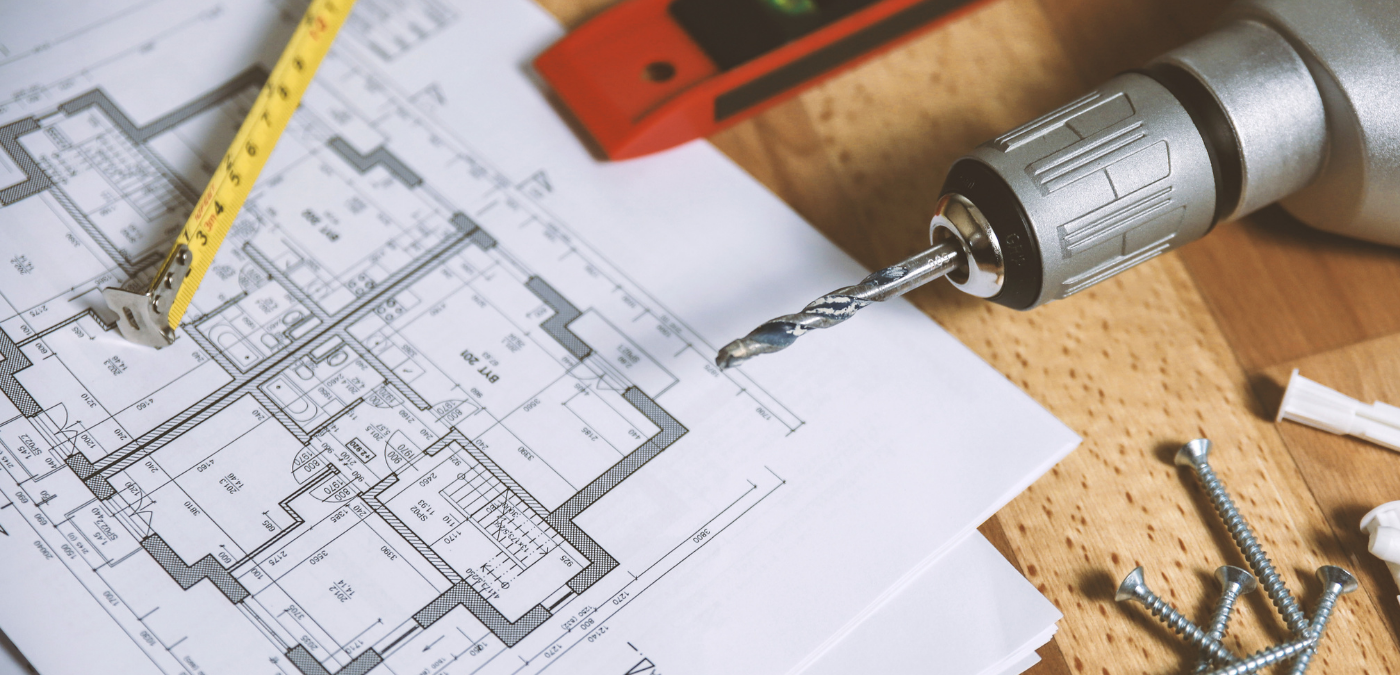


To build or not to build: that is the question.
Is it better to find a fantastic piece of land to build on from scratch, or to find an old ruin with its dramatic view, to start renovating it? There is obviously no "better", but the options are different and bear different implications, so you'll have to decide which one suits you best.
If you are thinking of building or renovating a property in Italy, you will want to read on, as we collected useful information on the building and renovating processes for you to take the right decision regarding your future Italian property project!
Building a house in Italy - a quick summary of the steps.
Choosing the right plot of land to build on is crucial. Committing to building a new house means you will have to request approval and comply with regulations, of course - to make sure you don't impact the future saleability of the property. The whole procedure will be a bit longer, as you will have to take into consideration all the legal restrictions, but dealing with experienced professionals can make the process safe and smooth. In fact, you will need the help of someone who has deep knowledge of Italian law and the technical aspects of the process.
In short, the steps involved in the building-from-scratch procedure are the following:
- Make sure you are purchasing a plot of land that you are allowed to build on - easily done: you will need to check its Certificate of Intended Use, and pair it with the local restrictions related to urban planning.
- Ask for advice from a technical expert: an architect, a surveyor, an engineer, someone who can help you design the property in accordance with the current regulations.
- At the same time, and with the same aim, make sure you list the materials and finishes for your property-to-be, so that you can start drafting contracts with the companies that will participate in building your home - and you don't incur in unexpected extra costs.
- Subsequently, you will apply for planning and building permits and/or appropriate authorizations. At this stage, you will deal with the local Municipality.
- One following key step is to choose the company that will carry out the building work. In this phase, you'd better ask for a couple of quotations from different companies, to make sure you're having the best service at the best price possible.
- Draft a building contract to ensure you have all the guarantees you need throughout the building process.
- Extra: a suggestion. Make sure you have an expert local manager to check that your works are developed and conducted complying with all the safety regulations and building restrictions that apply in the area.
- Enjoy your Italian property, built exactly as you dreamed it would be!

Restoring a property in Italy: how much does a renovation cost?
As we said for the purchase of a land to build on, the first step is to make sure you are making a "safe purchase", in terms of the technical aspect and consequently the economic one.
To do so, ask yourself - and the professionals involved - whether the property is located in a geographical area subject to any kind of constraints or regulations that may affect your renovation plans. As in the case of building, make sure that in your renovation process you are assisted by a professional who is aware of the hydrogeological constraints, and of the prescriptions of the landscape constraint - which protects buildings and areas of greatest landscape value, in order to preserve the beauty of the territory. When the area of your property is protected by such constraint, you will need to request a specific authorization through an Architect or Engineer.
With regards to costs, the three main items to consider, in general terms, are:
1. Cost of the professionals involved;
2. Expenses needed to fulfill the works, such as the costs of the materials;
3. Municipal fees and charges for obtaining permits.
When you are planning your project, don't forget that the renovation of an apartment in the city is quite a different experience, and involves quite different costs if compared to the renovation of, say, a farmhouse in the countryside or a stand-alone home in a small village. Indicatively, the costs of renovating an apartment can range from a minimum of € 500 per square meter to a maximum of around € 1,500 per square meter; the renovation of a farmhouse in the countryside ranges from around € 1,000 per square meter to a maximum of € 2,500 per square meter in case of heavy intervention.
Building or renovation: what's your option?
It may be difficult to already have in mind which one is the best option for you. It depends on your expectations, your available time, the budget you have in mind, and of course the property that you fall in love with. Whether it is a renovation project or a brand new building plan, the key to a successful project is to be assisted by the right professional, someone who is experienced and that you trust.
We asked our architect Alessandra Turso about her experience with our clients, and she said: "From my experience, I can say that restoration could take more time than building something new as some parts of the historical buildings may need to be consolidated or demolished and rebuilt; while new buildings can be faster from this point of view. Anyway, any project is a challenge, and in the end, it is always worth it!"
In fact, Property Organiser offers full assistance and professional advice throughout the building and renovation projects to our clients. If you want to find out about the service in more details, you can find information here or contact us directly with your doubts and requests.
Your new project is just one e-mail away!
Comments